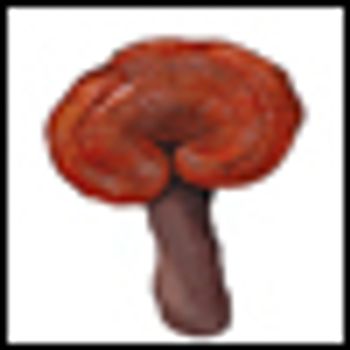
Reishi mushroom is widely used in Asia and around the world as an immunostimulant. With extracts derived from both the cap and the stem of the mushroom, its biologic activity is thought be due to beta-glucan polysaccharides and compounds called triterpenes.

